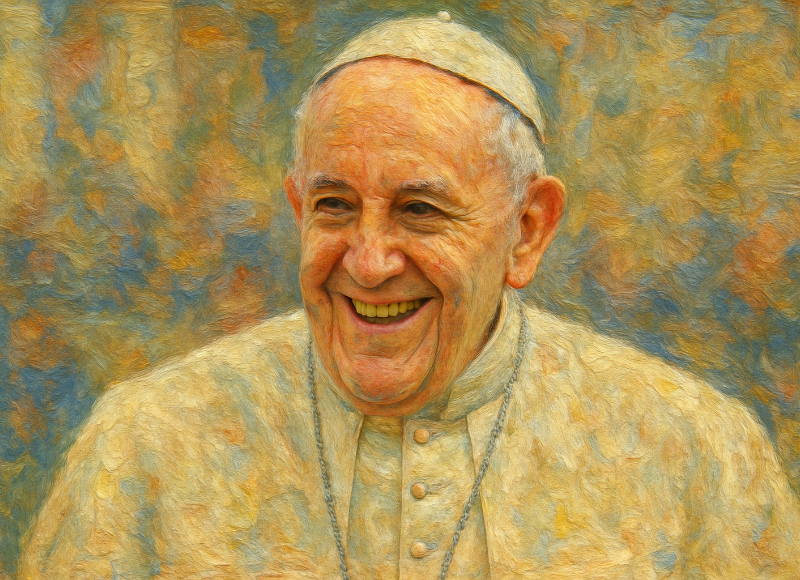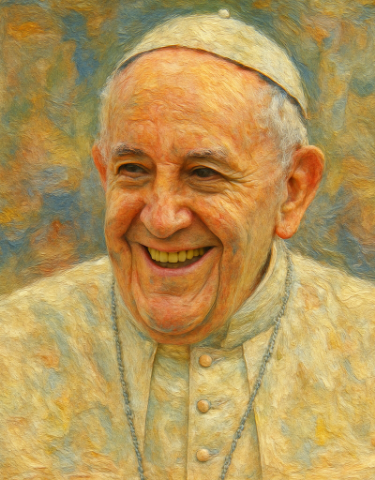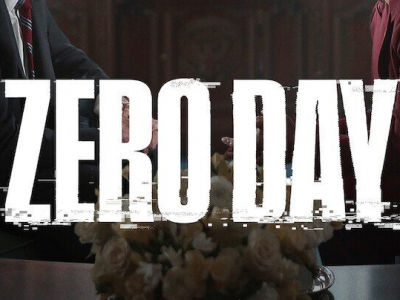Introduction
In Christian tradition, the number 7 carries profound significance: it symbolises divine completion and perfection. From the seven days of Creation to the Sabbath’s rest on the seventh day, from the seven sacraments to the seven gifts of the Holy Spirit, this number recurs throughout Scripture and liturgy as a sign of wholeness and covenantal fulfilment. By structuring this article around seven risk management lessons, we echo that heritage—seeking a complete, balanced set of insights drawn from Pope Francis’s remarkable journey.
Pope Francis – born Jorge Mario Bergoglio – passed away on 21 April 2025, at the age of 88. As the first Latin American pontiff and a global moral leader, Francis left a profound legacy that transcends religious boundaries. In mourning his loss, we also reflect on the leadership principles he embodied. Beyond theology, Pope Francis’s personal journey and papal ministry offer powerful insights into risk management and organisational leadership. His tenure was marked by humility, bold reforms and compassionate outreach, all undertaken in an often turbulent environment.
Business leaders and risk professionals can draw seven unique lessons from his life – lessons that both honour his legacy and guide us in navigating risk within our own institutions.
1. Lead with Humility and Authenticity
From the very start, Pope Francis demonstrated that true leadership isn’t about pomp and privilege but humility. He chose to live modestly in a Vatican guesthouse rather than the ornate papal apartments favoured by predecessors, explaining that simplicity protected his wellbeing. This set the tone at the top: transparency and authenticity would trump grandeur. Francis personally carried his own luggage and, during Holy Week services, washed the feet of inmates and the marginalised – underscoring that no task was beneath the leader.
Such humility built extraordinary trust and credibility. By “projecting simplicity” in the grand role of Pope, he signalled that mission and people came above ego. For risk managers in business, this is critical: humble leadership fosters a culture of openness. When executives are approachable and genuine, staff feel safe to report emerging threats or admit mistakes. A humble leader who listens can intercept brewing issues long before they become crises. Pope Francis’s authenticity earned him moral authority – a currency of trust invaluable in turbulent times. In an enterprise setting, leaders who emulate this humility can similarly strengthen their risk culture, ensuring that trust, not fear, governs responses to challenges.
2. Demand Integrity and Transparency at the Top
One of Pope Francis’s earliest bold moves was to tackle financial opacity in the Vatican’s bureaucracy – a realm long considered untouchable. He recognised that hidden risks fester in darkness, so he shone a light on the Church’s finances. Within months of his election in 2013, Francis initiated reforms of the Vatican Bank (formally the Institute for the Works of Religion), aiming to eliminate corruption and money laundering. He appointed an expert commission, engaged an outside consultancy to audit all customer accounts and, in January 2014, replaced key senior officials to dismantle entrenched networks. At one point, he was even prepared to consider closing the Bank entirely if it could not be reformed.
This fearless commitment to transparency and ethics offers a salient risk lesson: culture flows from the top. By confronting fraud and governance lapses head‑on, Pope Francis sought to pre‑empt larger institutional failures. Corporate executives and business risk teams can learn that addressing uncomfortable issues—financial controls, compliance gaps or toxic subcultures—early is far better than facing a full‑blown scandal later. Set the tone that ethics are non‑negotiable. Francis’s Vatican financial reforms demonstrated that tackling internal risks, even at the cost of short‑term disruption, ultimately protects an organisation’s mission and reputation. A leader who insists on integrity and daylight in operations strengthens the organisation’s immune system against risk.
3. Anticipate Long‑Term and Systemic Risks — Care for Our Common Home
Pope Francis consistently looked beyond immediate concerns to the broader, long‑term risks confronting humanity. In 2015, he issued Laudato Si’, a landmark encyclical framing climate change and environmental degradation as moral and strategic threats. “Climate change is a global problem with grave implications: environmental, social, economic, [and] political… It represents one of the principal challenges facing humanity in our day,” he wrote. He warned that failing to act would imperil future generations. Under his leadership, the Vatican convened experts to draft a “Planetary Protocol for Climate Change Resilience,” urging implementation of the Paris Agreement and sustainable development policies worldwide.
For business leaders, the lesson is to broaden the risk radar. Effective risk management isn’t confined to this quarter’s balance sheet; it encompasses horizon‑scanning for systemic threats—climate change, technological disruption and social instability. Proactively addressing such risks (for example, investing in greener operations or equitable labour practices) isn’t only ethically right—it’s strategically prudent. Pope Francis showed strategic foresight by championing sustainability; similarly, organisations must anticipate how global trends might impact their licence to operate and long‑term viability. Leaders must sometimes lead the recognition of emerging risks even before broader consensus forms.
4. Be Compassionate and Steady in Crisis
During crises, Pope Francis exemplified empathy, calm and unity—qualities indispensable in risk mitigation. A defining moment came in March 2020, as the world grappled with COVID‑19. He delivered an Urbi et Orbi blessing from an empty, rain‑soaked St Peter’s Square, acknowledging collective fear: “For weeks now it has been evening… thick darkness has gathered over our squares.” Yet he also offered hope and solidarity: “The pandemic has reminded us that we are all in the same boat… the storm exposes our vulnerability and uncovers those false and superfluous certainties.” With this empathetic address, he connected with millions—over 11 million tuned in—offering both candour about the peril and reassurance that compassion could carry humanity forward.
This approach holds a clear lesson: in crises, lead with empathy and clarity. Pope Francis did not downplay the danger but reinforced shared values and collective resilience. For corporate leaders facing global emergencies or internal upheavals, the Francis model means communicating honestly, steadying teams with calm resolve and showing genuine care for people’s concerns. Stakeholders remember about crisis management lessons and how leaders act under pressure. A compassionate response preserves trust and social capital, whereas indifference or panic deepens the crisis. Pope Francis’s COVID‑era leadership teaches that the human element is central to effective crisis management.
5. Stay Grounded — Engage the Front Line for Real Insight
Francis’s life story is one of constant engagement with the “peripheries”—the poor, the marginalised and everyday people often overlooked by power. As Archbishop of Buenos Aires, he rode buses with commuters and walked through slums. As Pope, he continued this practice globally, visiting refugees on Lampedusa, meeting the homeless in Rome and travelling to Brazil’s favelas during World Youth Day. He urged clergy to be “shepherds with the smell of the sheep”—living among their flock to understand their struggles. “Strip yourselves of… your self‑assertion, in order to put God and people at the centre,” he advised, emphasising that leaders must prioritise the reality of those they serve.
For risk professionals, the parallel is clear: engage with your front line. Whether by walking the factory floor, talking to customers or listening to junior staff, leaders gain critical insight by staying accessible. Front‑line employees often detect operational defects, safety hazards or reputational red flags well before formal reports emerge. Pope Francis’s willingness to “take the side of the marginalised” ensured he heard truths that might otherwise have stayed hidden. Cultivating bottom‑up communication acts as an early‑warning system. Moreover, it builds trust—leaders who leave the boardroom to engage sincerely with people foster loyalty and a shared commitment to problem‑solving. Lesson: Don’t manage systematic risks only from spreadsheets—go out and smell the realities on the ground.
6. Build Bridges and Collaborate to Mitigate Risk
A striking feature of Pope Francis’s leadership was his role as a bridge‑builder. He reached across religious, political and cultural divides to find common ground. In 2014, he played a key part in re‑establishing diplomatic relations between the United States and Cuba after five decades of estrangement, sending personal letters to President Barack Obama and President Raúl Castro and hosting Vatican‑mediated talks. Both leaders publicly acknowledged his mediation as pivotal. In February 2019, he visited the Arabian Peninsula and stood hand‑in‑hand with the Grand Imam of Al‑Azhar, signing a “Document on Human Fraternity” to promote peace and counter extremism.
Collaboration can address risks beyond any single organisation’s capacity. In business, this translates to industry consortia for cybersecurity, public‑private partnerships for infrastructure resilience or cross‑functional teams that break down silos. By engaging diverse stakeholders—even traditional competitors—leaders discover creative solutions and diffuse tensions that threaten objectives. Pope Francis’s diplomatic efforts remind us that coalition‑building is risk mitigation: a network of trust and cooperation multiplies capacity to navigate challenges.
7. Have the Courage to Take Calculated Risks for Mission
Pope Francis’s papacy was defined not only by dialogue but also by moments of bold, risk‑embracing decision‑making. In March 2021, at the age of 84 and amid a global pandemic, he became the first pope to visit Iraq—a country long plagued by war and terrorism. He travelled under tight security, met with the Grand Ayatollah Ali al‑Sistani in Najaf and prayed amid the ruins of Mosul to encourage the dwindling Christian community and promote interreligious peace. He later reflected that he had weighed the risks diligently but felt a deep pastoral obligation to go. His successful mission demonstrated courageous leadership—taking organisational and personal risk in service of a higher purpose.
For executives, the message is that prudent risk‑taking is sometimes essential for strategic transformation. Not all risks can be avoided; some must be confronted to achieve mission‑critical objectives. This might mean investing in disruptive innovation, exiting a profitable but unsustainable business line, or advocating industry‑wide reforms. Francis’s journey underscores that stagnation can be more dangerous than bold action. Leaders must discern which risks to embrace and then move forward with conviction, balancing courage with careful preparation.
Conclusion
Pope Francis’s passing marks the end of an era, but his leadership lessons endure. His life was a testament to principled risk‑taking, compassion and integrity in service of the common good. In reflecting on these seven lessons, we see a unifying theme: effective leadership is as much about character and vision as it is about analysis and protocol. Francis reshaped a two‑millennium‑old institution by combining humility with bold action, never losing sight of the human element.
For today’s business leaders and risk professionals, his example is a powerful reminder that crisis management isn’t purely technical—it’s profoundly human. Building trust, fostering transparency, anticipating future challenges, uniting people in adversity, listening at all levels, collaborating widely and daring to act when needed—these are the hallmarks of Pope Francis’s approach. By embracing these insights, executives honour his memory in the most practical way: by leading with wisdom, courage and a deep sense of responsibility to others. That is a tribute truly worthy of his legacy.














